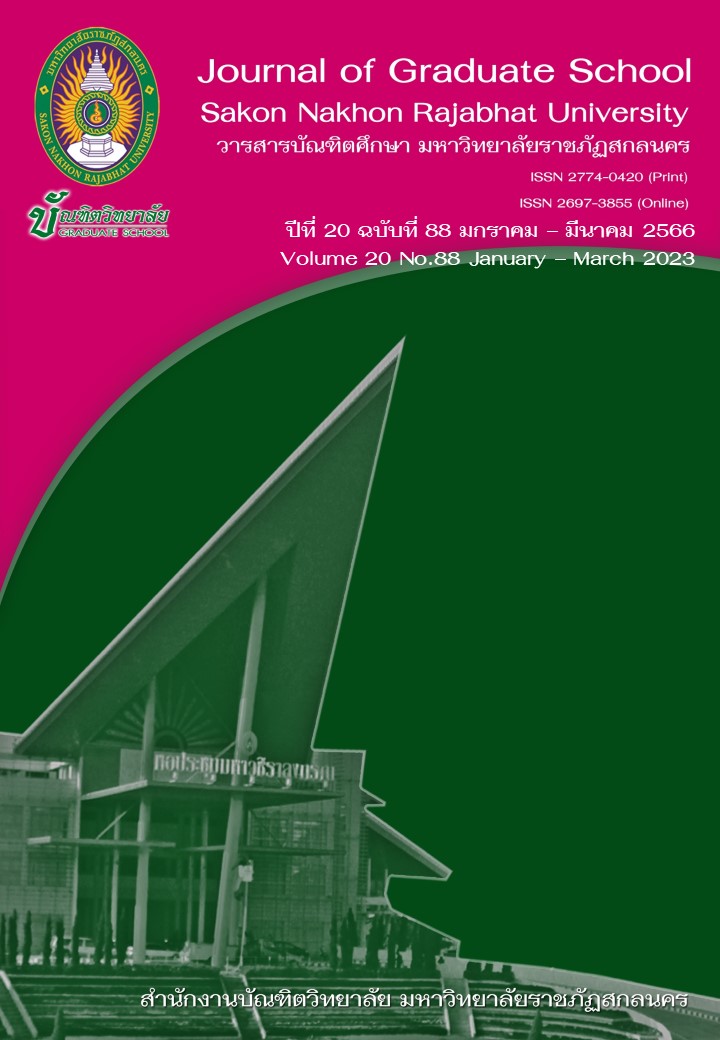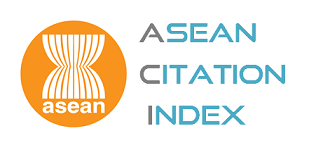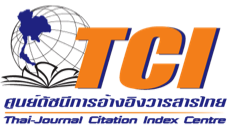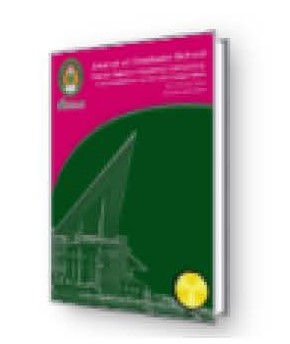อิทธิพลของความผูกพันต่องานและความไว้วางใจต่อองค์การที่ส่งผลต่อผลการปฏิบัติงาน ของพนักงานสายสนับสนุนในมหาวิทยาลัยราชภัฏสกลนคร
Keywords:
Work Engagement, Organizational Trust, Job Performance, Work engagement, Organizational trust, Job performance, Academic support staffAbstract
The objectives of this research were to 1) investigate the level of work engagement, organizational trust, and job performance of academic support staff at Sakon Nakhon Rajabhat University (SNRU); 2) investigate the influence of work engagement on job performance of academic support staff at SNRU; and 3) determine the influence of organizational trust on the job performance of academic support staff at SNRU. The sample in this research, obtained through stratified sampling, consisted of 214 academic support staff at SNRU. Tools for data collection consisted of a questionnaire form with the reliability of .975. Statistics for data analysis included mean, standard deviation, Pearson’s product-moment correlation, and multi-regression analysis
The results showed that 1) The academic support staff at SNRU rated their work engagement, organizational trust, and job performance at a high level; 2) Work engagement achieved 63.50 percent of prediction on the job performance of academic support staff at SNRU at the .000 level of significance; and 3) Organizational trust achieved 44.00 percent of prediction on the job performance of academic support staff at SNRU at the .000 level of significance.
References
งานบริหารบุคคลและนิติการ. (2565). จำนวนบุคลากรมหาวิทยาลัยราชภัฏสกลนคร. สกลนคร: กองกลาง สำนักงานอธิการบดี มหาวิทยาลัยราชภัฏสกลนคร.
ธานินทร์ ศิลป์จารุ. (2552). การวิจัยและการวิเคราะห์ข้อมูลทางสถิติด้วย SPSS. กรุงเทพฯ: เอส. อาร์. พริ้นติ้ง แมส โปรดักส์.
บุญชม ศรีสะอาด. (2553). การวิจัยเบื้องต้น. (พิมพ์ครั้งที่ 8). กรุงเทพฯ: สุวีริยาสาส์น.
บุญใจ ศรีสถิตนรากูร. (2555). การพัฒนาและตรวจสอบคุณภาพเครื่องมือวิจัย: คุณสมบัติการวัดเชิงจิตวิทยา. กรุงเทพฯ: จุฬาลงกรณ์มหาวิทยาลัย.
ปธาน สุวรรณมงคล. (2558). การบริหารงานภาครัฐกับการสร้างธรรมาภิบาล. กรุงเทพฯ: สถาบันพระปกเกล้า.
ปริฉัตร สระทองฮ่วม. (2560). การพัฒนาตนเองของพนักงานสายสนับสนุนวิชาการ มหาวิทยาลัยศิลปากร. Journal of Management Science Nakhon Pathom Rajabhat University, 4(1), 84-96.
พระราชบัญญัติมหาวิทยาลัยราชภัฎ พ.ศ. 2547. (2547). ราชกิจจานุเบกษา. เล่ม 121 ตอนพิเศษ 23 ก.
มาริน จันทรวงค์ ลำเนา เอี่ยมสะอาด และผ่องลักษม์ จิตต์การุญ. (2556). คุณภาพชีวิตการทำงานของบุคลากรสายสนับสนุนในมหาวิทยาลัยราชภัฏพิบูล สงครามและแนวทางการพัฒนา. วารสารบัณฑิตศึกษา มหาวิทยาลัยราชภัฏพิบูลสงคราม, 7(1), 111–119.
ยุภาวรรณ เผือกรักษา สิน พันธุ์พินิจ และทวีศักดิ์ พุฒสุขี. (2552). ความผูกพันต่อองค์กรของพนักงานสายสนับสนุน คณะวิทยาศาสตร์ จุฬาลงกรณ์มหาวิทยาลัย. วารสารวิชาการ มหาวิทยาลัยราชภัฏบุรีรัมย์, 1(2), 28–36.
สุจิตรา บุณยรัตพันธุ์. (2556). ระเบียบวิธีวิจัยสำหรับรัฐประศาสนศาสตร์. กรุงเทพฯ: เสมาธรรม.
อธิป จันทร์สุริย์ และวิโรจน์ เจษฎาลักษณ์. (2563). อิทธิพลของความไว้วางใจต่อประสิทธิผลของการทำงานเป็นทีมในธุรกิจบริการ. วารสารเกษมบัณฑิต, 21(1), 1-12.
Cohen, J. (1988). Statistical Power and Analysis for the Behavioral Sciences. (2nd ed). Hillsdale, New Jersey: Lawrence Erlbaum.
Cropanzano, R., & Mitchell, M. S. (2005). Social exchange theory: An Interdisciplinary review. Journal of Management, 31, 874–900.
Gemeda, K. H., & Lee, J. (2020). Leadership styles, work engagement and outcomes among information and communications technology professionals: A cross-national study. Heliyon, 6(4), https://doi.org/10.1016/j.heliyon.2020.e03699.
Hitch, C. (2012). How to Build Trust in an Organization. UK: UNC Kenan-Flagler Business.
Kahn, A. W. (1990). Psychological Conditions of Personal Engagement and Disengagement at Work. The Academy of Management Journal, 33(4), 692-724.
Kmieciak, R. (2020). Trust, knowledge sharing, and innovative work behavior: empirical evidence from Poland. European Journal of Innovation Management. Emerald Publishing Limited. 1460 – 1060. DOI 10.1108/EJIM-04-2020-0134.
Koopmans, L., Bernaards, C. M., Hildebrandt, V. H., Schaufeli, W. B., De Vet, H. C. W., & Van der Beek, A. J. (2011). Conceptual frameworks of individual work performance: A systematic review. Journal of Occupational and Environmental Medicine. 53(8). 856 - 866. DOI: 10.1097/JOM.0b013e318226a763.
Leech, N. L.; Barrett, K. C., &Morgan, G. A. (2005). SPSS for Intermediate Statistics: Use and Interpretation. (2nd ed). Mahwah, New Jersey: Lawrence Erlbaum.
Schaufeli, W. B., Salanova, M., González-Romá, V., & Bakker, A. B. (2002). The measurement of engagement and burnout: A two sample confirmatory factor analytic approach. Journal of Happiness Studies: An Interdisciplinary Forum on Subjective Well-Being, 3(1), 71–92. https://doi.org/10.1023/A:1015630930326.
Schaufeli, W. B., Taris, T. W., & van Rhenen, W. (2008). Workaholism, burnout, and work engagement: Three of a kind or three different kinds of employee well-being?. Applied Psychology: An International Review, 57(2), 173–203. https://doi.org/10.1111/j.1464-0597.2007.00285.x.
Shaw, R. B. (1997). Trust in the Balance Building Successful Organizations on Results Integrity and Concern. California: Jossey-Bass California.
Teepapa, T. (2020). The Relationship Between Employee Envelopment, Employee Engagement and Innovative Work Behavior and Mediating role of Organizational Context of Employees in Thai Organization. Journal of Suvarnabhumi Institute of Technology (Humanities and Social Science), 6(2), 224–241.
Downloads
Published
How to Cite
Issue
Section
License
Copyright (c) 2023 Journal of Graduate School Sakon Nakhon Rajabhat University

This work is licensed under a Creative Commons Attribution-NonCommercial-NoDerivatives 4.0 International License.
บทความทุกบทความที่ตีพิมพ์ในวารสารบัณฑิตศึกษา มหาวิทยาลัยราชภัฏสกลนคร ถือว่าเป็นลิขสิทธิ์ของบัณฑิตวิทยาลัย มหาวิทยาลัยราชภัฏสกลนคร










